- A Look at the Most Popular Prescription Weight Loss Drugs May 20, 2024

GLP-1 agonist weight loss drugs (think Ozempic and Wegovy) are all the rage right now, available at clinics and spas nationwide. They promise users a quick way to shed pounds, and many studies show they are quite effective in doing just that.
But do they work long-term? What are the downsides? And are they right for you? Here’s a deeper look at these weight loss drugs, including pros and cons and how to use them most effectively paired with your Diet-to-Go meals. - This Carbohydrate is a Boon for Reducing Belly FatApr 22, 2024
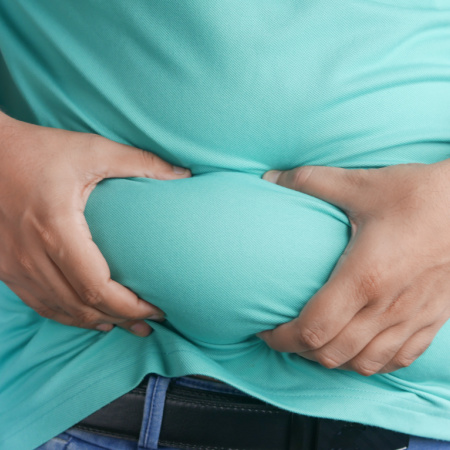
One of the biggest struggle areas many of us have is undoubtedly around our bellies. Belly fat often seems to be the quickest to burgeon and slowest to go away.
Unfortunately, studies show belly fat increases the risk of things like type 2 diabetes and heart disease. It also can be uncomfortable and make finding clothes that fit challenging.
Thankfully, there is good news for those of us who want to target this problematic area — and the solution may lie in boosting this carbohydrate. - New Research Indicates How Cholesterol Types Impact Heart Disease RiskNov 20, 2023

Cholesterol is one of the primary factors analyzed when researching heart disease — HDL (healthy) cholesterol to indicate protection, and LDL (lousy) cholesterol to indicate a higher risk. A recent review of previous studies shows that it's actually more complex than knowing your numbers.
People who may be at risk for heart disease should ask their doctors for a blood test measuring for LDL and HDL cholesterol, non–HDL-cholesterol, and cholesterol particle size. By learning your cholesterol details, you can work with your doctor to create a plan to lower your chances of getting the disease.
But what else can you do to mitigate your risk of getting heart disease? - Examining the Link Between Stress and Weight GainOct 9, 2023

Traffic. Work. Groceries. Bills. Stress is a part of life — and most of us face it daily. Thankfully, we tend to be proficient in managing all those common day-to-day stressors.
But when stress gets overwhelming, it can make maintaining a healthy weight very challenging.
What exactly is the link between stress and weight gain? - How Do the Most Popular Diets Rank for Heart Health?Sep 25, 2023
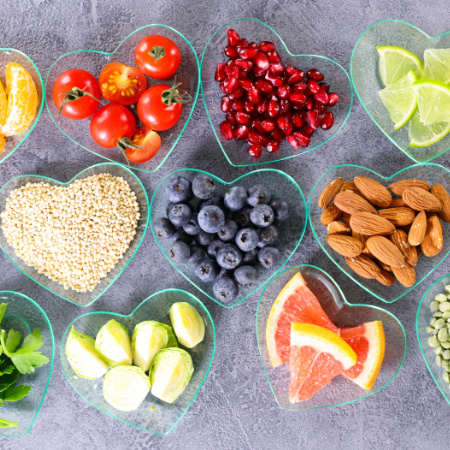
Skim any social media feed related to weight loss, and there’s a good chance you’ll see it chock full of everyone from fitness influencers to celebrities touting a diet that helped them shed pounds in record time. Here’s the thing: Many of those diets — such as very-low-fat and very-low-carb — may indeed help you lose weight, but that doesn’t mean they’re good for you.
What makes a diet heart healthy and where does Diet-to-Go stand in the rankings? - The Benefits of Staying Hydrated and How Much Water to DrinkApr 3, 2023

Water is an essential part of a healthy, well-rounded diet. In fact, studies show that hydrating often may slow the aging process and help you live longer. In addition to adding years to your life, there are also a host of other benefits of drinking water and staying well-hydrated.
So, how much water should you drink each day?
Here’s the thing, it’s not a one-size-fits-all model. But, we can help you figure out what amount is right for you! - 7 Scientific Reasons You Should Try Meatless MondayMar 20, 2023
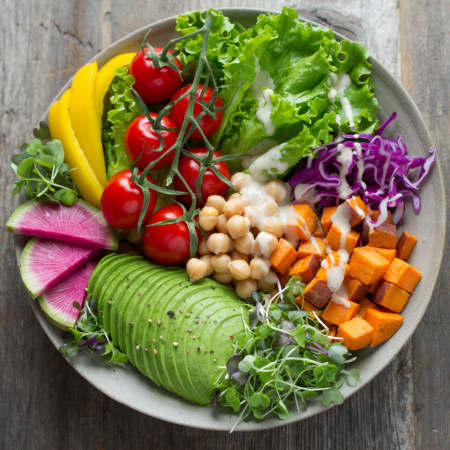
Burgers, steak, lamb chops — red meat is a staple of the American diet.
While it may be unreasonable to cut it out of your diet completely, going vegetarian at least one day a week can go a long way toward improving your health. That’s why we outlined seven scientific reasons why you should try Meatless Monday and reap all the benefits of reducing your meat consumption. - Exercise the Weight Away? Here’s Why That’s UnlikelyJan 31, 2022

You’ve probably heard the whole, “calories in, calories out” thing a time or two, and when it comes to weight loss, shedding pounds actually does come down to burning more calories than you consume.
But that has led many well-intentioned people to focus on exercise as their primary way to lose weight, a belief rooted in the notion that it’s possible to out-exercise a bad diet.
Here’s the thing: It’s not.
A proper diet is where you’ll likely see the best results, and that's where we can help! - Can We Really Blame a Slowing Metabolism?Oct 4, 2021
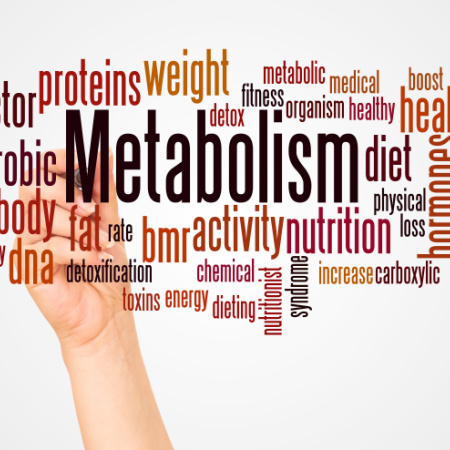
Starting in our 20s, and as we age, most of us believe we just naturally tend to gain weight because our metabolism slows. While this may be true after age 60, that is not necessarily the case beforehand.
Studies are showing that in adulthood weight gain is likely caused by taking in more calories than are burned. Fitness guru, Dr. Gabe Mirkin goes on to tell us “Variables include how often you eat, the types of bacteria in your colon, your portion sizes and the types of foods you select, your exercise program and your daily activity level.,” all contribute to middle adulthood weight fluctuations.
So before you go blaming your metabolism for those extra pounds, try some of these suggestions for new habits that could turn your life around and move you towards a lifestyle change that includes eating right. - Our Immune System (and How to Eat the Foods That Support It)Nov 9, 2020
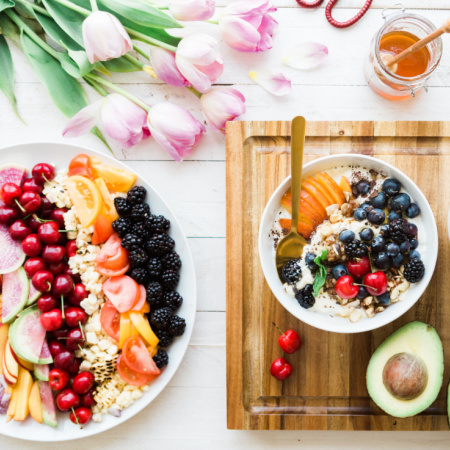
If you're like most, living in a pandemic has you thinking about ways to stay healthy. Luckily, our bodies have a built-in defense mechanism that works hard to keep viruses at bay and us living longer and healthier- our immune system.
See how you can start helping to boost your immunity today! - 3 Food Groups That May Help Prevent Type-2 DiabetesAug 10, 2020
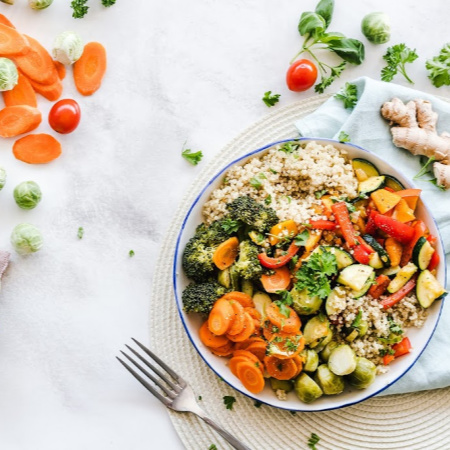
Diabetes may not be something you think about on a regular basis, but experts say eating more of these 3 food groups may help keep blood sugar levels in check and ward off disease!
- 9 Surefire Ways to Manage the Keto Flu and Power Through That First WeekJun 3, 2019

The Keto Flu: What it is, why it happens, and 9 surefire ways to help prevent and reduce the symptoms.
- 7 Ways to Improve Your Gut Health — and Your MoodApr 9, 2018

Have you ever noticed that when you eat a whole lot of certain foods — cookies, chips, that kind of thing — you feel just yucky? There’s a reason for that. A growing field of science is finding a connection between what we eat and our mood.
- Why the Paleo Diet is NonsenseAug 8, 2016
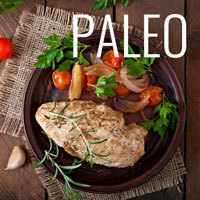
During the paleolithic age (about 2.6 million years ago), our ancestors ate a diet of mainly of fish, nuts, berries and game, and hunted using tools made from stone or bone. Their nutritional map was pretty much whatever they could scavenge from the land. The cavemen of that time were foraging for the barest of essentials to simply survive, and the fact that, one day, modern humans would adopt their tenuous version of sustenance makes about as little sense as humanity suddenly abandoning cell phones in favor of smoke signals.
- Considering Gluten-Free? Why It’s Probably Not Necessary (and May Even Be Bad for You)Jul 25, 2016

Gluten-free is a craze that has inserted itself as one of the most popular dieting and weight loss trends since the turn of the century.
But, in reality, it’s probably not necessary for most of us and may even be harmful. - How to Lose Weight (During and) After MenopauseJun 16, 2015

It starts around age 30 – you start to notice that eating the same foods and doing the same activity no longer maintains weight. Worse still, is that the weight you do gain mostly sticks around your mid-section because of a shift in hormonal activity. But, don’t worry, it’s not all doom and gloom! There are several dietary fixes that can boost metabolism and diminish the effects of both middle-age and menopause.
- 5 Things You Never Knew Yogurt Could Do for YouFeb 23, 2015

Lately, yogurt has enjoyed a swift lift to the top of “health food” lists everywhere. We can credit some of that enthusiasm to the very smart marketing of top yogurt brands looking to reignite consumer interest in an age-old product. But there is truth behind the buzz and scientific research that proves that yogurt deserves its time in the lime light. Here are five things you may not know about yogurt and your health:
- Interview with Diet-to-Go Head NutritionistSep 17, 2013
As Diet-to-Go’s head nutritionist, Rebecca Mohning has spent over a decade making sure that Diet-to-Go meals are up-to-date with current nutrition standards and that Diet-to-Go customers constantly have their nutritional needs met and questions answered.
- The Bacon Factor: Low-Carb Diet Plans for Weight LossAug 1, 2013
So you think you’re finally ready to give up all the refined grains and sugars and opt for eating bacon 24/7? We’re kidding about the bacon, but going low-carb may in fact be a great solution for your weight loss.









